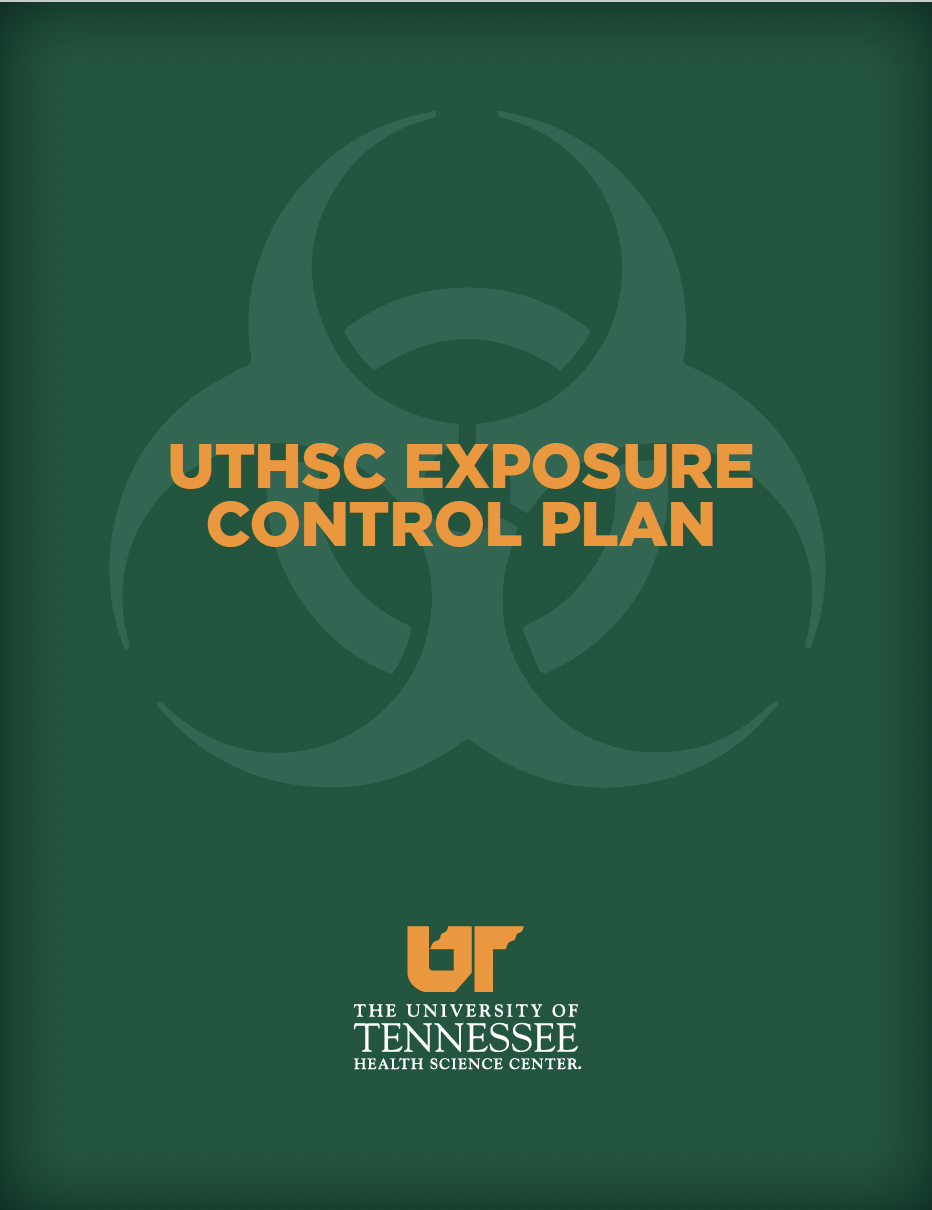Bloodborne Pathogens
UTHSC personnel with the potential for exposure to human blood or other potentially infectious material (OPIM) must take the necessary precautions to protect themselves and to comply with state law. This includes utilizing appropriate engineering controls, work practices and personal protective equipment (PPE) as detailed in the UTHSC Exposure Control Plan. Key provisions of the plan are outlined below.
Supervisors of personnel with the potential for exposure must ensure that their personnel meet the requirements of the Exposure Control Plan and applicable policies maintained by their college or department.
Exposure Control Plan
The UTHSC Exposure Control Plan is included in the Safety Manual accessible through the UTHSC Campus Safety website.
Bloodborne Pathogens Training
UTHSC personnel must complete bloodborne pathogens training at the time of their assignment to a job responsibility with the potential for exposure to blood or OPIM. This training must be refreshed annually. Bloodborne Pathogens training is available to UTHSC personnel through Blackboard. Email Campus Safety at labsafety@uthsc.edu with the name and Net ID of personnel to be enrolled in this course. You will receive an email reply when the request has been completed.
Vaccination
UTHSC personnel with potential exposure to bloodborne pathogens must be vaccinated against hepatitis B, demonstrate immunity, or sign a Vaccination Declination Form acknowledging that they have been offered the vaccination and chosen not to receive it. Vaccinations are provided by University Health Services at the expense of the employee’s department. Vaccination records or declination forms are retained by University Health Services as part of the individual’s medical record. Call University Health Services (448-5630) to schedule for the Hepatitis B vaccine series or titer. Email your signed declination form to eohs@uthsc.edu.
Exposure Response and Post Exposure Follow-up
Personnel exposed to human blood or OPIM through a needlestick, body fluid splash or other specific exposure must respond immediately by following the procedure of your campus, affiliate location or department as summarized in the Exposure Control Plan. Personnel with exposures that occur in Memphis can receive care at University Health Services located at 910 Madison Avenue, 9th floor. Employee exposures must be reported to supervisors and by calling the Corvel 24/7 hotline at 1.866.245.8588. You will be given an “authorization to treat” claim number. You must present this number to the treatment site.
Waste Management
Sharps and other potentially infectious waste must be managed properly. Needles and other sharp devices must be discarded in an FDA approved sharps container. Other potentially infectious solid materials (e.g., contaminated PPE) must be discarded as red bag waste. Personnel generating waste must be trained how to properly handle, segregate and package containers of regulated medical waste. This information is included in the UTHSC Bloodborne Pathogens training accessible on Blackboard.

